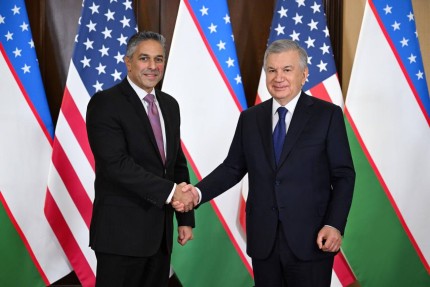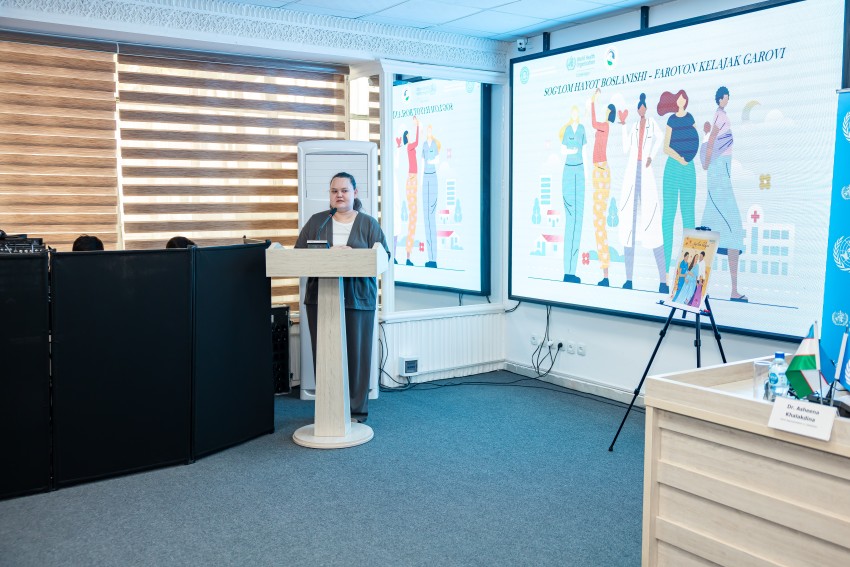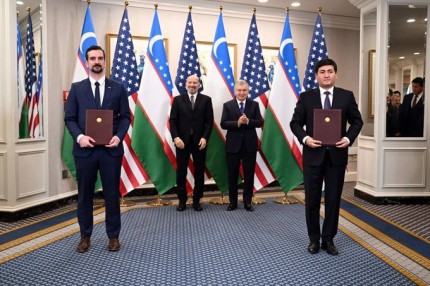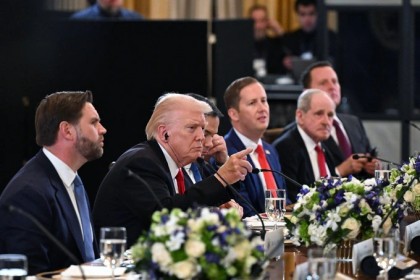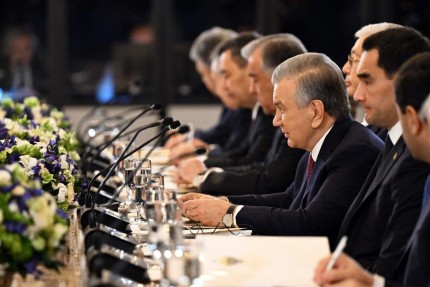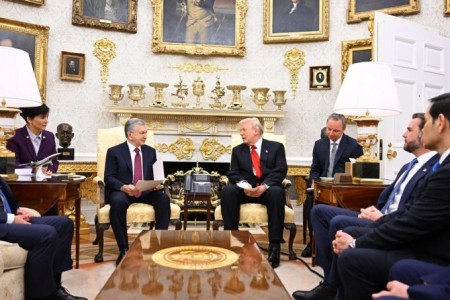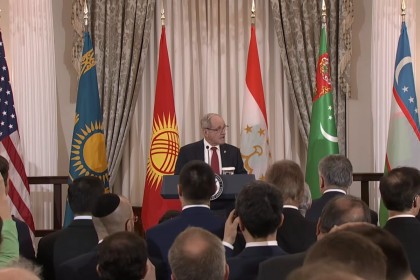British companies are exporting hundreds of millions of pounds of equipment and machinery which almost certainly ends up in Russia, undermining the official sanctions regime and bolstering Vladimir Putin's war machine, according to data analysis from Sky News.
The items - which include drone equipment, optical supplies and heavy machinery - are being sent to countries in the Caucasus and Central Asia, including Kyrgyzstan, Armenia, Uzbekistan and others, from where they are understood to be forwarded on to Russia.
The numbers show that despite the sharp fall in the flow of goods to Russia, following the imposition of trade sanctions after its invasion of Ukraine two years ago, large volumes of sensitive, "dual use" British goods are still finding their way to Moscow.
The analysis underlines the scale of Britain's participation in a shadow economy which helps keep Russia's military supplied with parts and hardware for the weaponry it uses against Ukraine
Flows of British goods to Russia itself have fallen by 74% since the outbreak of war, following the imposition of sanctions. The vast majority of exports still flowing to Russia are food, medical products or other humanitarian items.
Flows of heavy machinery, electrical equipment and cars have dropped to nearly zero.
Those figures imply the sanctions regime has been incredibly successful, and indeed, a government spokesperson said: "We have implemented the most severe package of economic sanctions ever imposed on a major economy."
However, closer examination of Britain's official trade statistics provides an alternative prism.
They show that while UK exports to Russia have fallen sharply, UK exports to a suite of former Soviet satellite states - from Uzbekistan to Georgia - have risen at an unprecedented rate.
British exports to Kyrgyzstan, the small former Soviet satellite state, have risen at a breakneck rate, by over 1,100%. These exports are dominated by the heavy machinery and vehicles which can no longer be sent directly to Russia.
A Europe-wide problem
According to Robin Brooks, former chief economist of financial body the IIF, this is something which has been going on for some time, with other European countries, most notably Germany and Poland, also sending large quantities of hardware to Russia via these Caucasus and Central Asian states.
"They're clearly getting an order from somewhere that is a Russian satellite that happens to be domiciled in one of these Central Asian countries," he said.
"What happens then? Maybe there's plausible deniability, maybe they know... all we know for sure is that the rise in export volumes that is happening is completely insane, and is inconsistent with any underlying data in these countries.
"So the only reasonable explanation is: Russia.
"From the Western European and especially the EU side, I would say, this has been going on for a while. It is at this point widely known in Brussels, and I think there is a key question as to why nothing is being done at a central EU level to stop this?"
British officials argue that they are constantly attempting to tighten the UK sanctions regime. A spokesperson told Sky News: "We also recently announced the creation of a new Office of Trade Sanctions Implementation to strengthen our enforcement of sanctions.
"Any non-compliance with these tough sanctions is a serious offence and punishable through large financial penalties or criminal prosecution."
Exports to other Russia-adjacent states
However, the scale and breadth of the trade is striking. UK export volumes haven't just spiked to Kyrgyzstan. They are also up nearly as sharply to Armenia, which, according to Mr Brooks, has recorded a sharp increase in its onward goods exports to Russia.
Doubly worrying is the fact that among the goods being sent to these countries are significant quantities of items considered "dual use" - which can be repurposed into weaponry.


